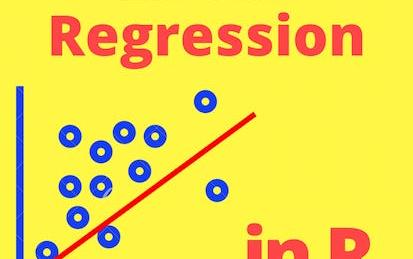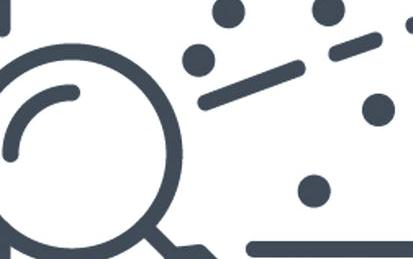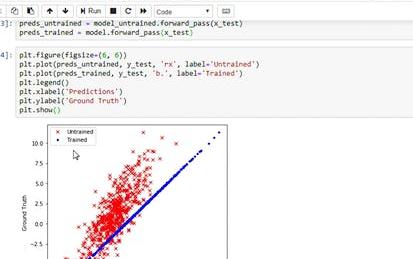

دوراتنا

Advanced Statistics for Data Science
Fundamental concepts in probability, statistics and linear models are primary building blocks for data science work. Learners aspiring to become biostatisticians and data scientists will benefit from the foundational knowledge being offered in this specialization. It will enable the learner to understand the behind-the-scenes mechanism of key modeling tools in data science, like least squares and linear regression. This specialization starts with Mathematical Statistics bootcamps, specifically concepts and methods used in biostatistics applications.
-
Course by

-
 Self Paced
Self Paced
-
 الإنجليزية
الإنجليزية

Data Analysis in R: Predictive Analysis with Regression
Increasingly, predictive analytics is shaping companies' decisions about limited resources. In this project, you will build a regression model to make predictions. We will start this hands-on project by exploring the dataset and creating visualizations for the dataset. By the end of this 2-hour-long project, you will be able to build and interpret the result of a simple linear regression model in R. Also, you will learn how to perform model assessments and check for assumptions using diagnostic plots.
-
Course by

-
 Self Paced
Self Paced
-
 3 ساعات
3 ساعات
-
 الإنجليزية
الإنجليزية

XG-Boost 101: Used Cars Price Prediction
In this hands-on project, we will train 3 Machine Learning algorithms namely Multiple Linear Regression, Random Forest Regression, and XG-Boost to predict used cars prices. This project can be used by car dealerships to predict used car prices and understand the key factors that contribute to used car prices.
By the end of this project, you will be able to:
- Understand the applications of Artificial Intelligence and Machine Learning techniques in the banking industry
- Understand the theory and intuition behind XG-Boost Algorithm
-
Course by

-
 Self Paced
Self Paced
-
 3 ساعات
3 ساعات
-
 الإنجليزية
الإنجليزية

Supervised Machine Learning: Regression and Classification
In the first course of the Machine Learning Specialization, you will: • Build machine learning models in Python using popular machine learning libraries NumPy and scikit-learn. • Build and train supervised machine learning models for prediction and binary classification tasks, including linear regression and logistic regression The Machine Learning Specialization is a foundational online program created in collaboration between DeepLearning.AI and Stanford Online.
-
Course by

-
 Self Paced
Self Paced
-
 33 ساعات
33 ساعات
-
 الإنجليزية
الإنجليزية

Survival Analysis in R for Public Health
Welcome to Survival Analysis in R for Public Health! The three earlier courses in this series covered statistical thinking, correlation, linear regression and logistic regression. This one will show you how to run survival – or “time to event” – analysis, explaining what’s meant by familiar-sounding but deceptive terms like hazard and censoring, which have specific meanings in this context.
-
Course by

-
 Self Paced
Self Paced
-
 12 ساعات
12 ساعات
-
 الإنجليزية
الإنجليزية

Linear Regression and Multiple Linear Regression in Julia
This guided project is for those who want to learn how to use Julia for linear regression and multiple linear regression. You will learn what linear regression is, how to build linear regression models in Julia and how to test the performance of your model.
While you are watching me code, you will get a cloud desktop with all the required software pre-installed. This will allow you to code along with me. After all, we learn best with active, hands-on learning.
Special Features:
1) Work with real-world stock market data.
2) Best practices and tips are provided.
-
Course by

-
 Self Paced
Self Paced
-
 2 ساعات
2 ساعات
-
 الإنجليزية
الإنجليزية

Predicting Salaries with Simple Linear Regression in R
In this 1-hour long project-based course, you will learn how to create a simple linear regression algorithm and use it to solve a basic regression problem. By the end of this project, you will have built, trained, tested, and visualized a Regression model that will be able to accurately predict the salary of a data scientist if provided with some information about years of experience.
In order to be successful in this project, you should just know the basics of R and linear regression.
-
Course by

-
 Self Paced
Self Paced
-
 3 ساعات
3 ساعات
-
 الإنجليزية
الإنجليزية

Predict Sales Revenue with scikit-learn
In this 2-hour long project-based course, you will build and evaluate a simple linear regression model using Python. You will employ the scikit-learn module for calculating the linear regression, while using pandas for data management, and seaborn for plotting. You will be working with the very popular Advertising data set to predict sales revenue based on advertising spending through mediums such as TV, radio, and newspaper.
By the end of this course, you will be able to:
- Explain the core ideas of linear regression to technical and non-technical audiences
-
Course by

-
 Self Paced
Self Paced
-
 3 ساعات
3 ساعات
-
 الإنجليزية
الإنجليزية
Machine Learning with Python
Get ready to dive into the world of Machine Learning (ML) by using Python! This course is for you whether you want to advance your Data Science career or get started in Machine Learning and Deep Learning. This course will begin with a gentle introduction to Machine Learning and what it is, with topics like supervised vs unsupervised learning, linear & non-linear regression, simple regression and more. You will then dive into classification techniques using different classification algorithms, namely K-Nearest Neighbors (KNN), decision trees, and Logistic Regression.
-
Course by

-
 Self Paced
Self Paced
-
 33 ساعات
33 ساعات
-
 الإنجليزية
الإنجليزية

Statistical Modeling for Data Science Applications
Statistical modeling lies at the heart of data science. Well crafted statistical models allow data scientists to draw conclusions about the world from the limited information present in their data. In this three credit sequence, learners will add some intermediate and advanced statistical modeling techniques to their data science toolkit. In particular, learners will become proficient in the theory and application of linear regression analysis; ANOVA and experimental design; and generalized linear and additive models.
-
Course by

-
 Self Paced
Self Paced
-
 الإنجليزية
الإنجليزية

Data Science with R - Capstone Project
In this capstone course, you will apply various data science skills and techniques that you have learned as part of the previous courses in the IBM Data Science with R Specialization or IBM Data Analytics with Excel and R Professional Certificate. For this project, you will assume the role of a Data Scientist who has recently joined an organization and be presented with a challenge that requires data collection, analysis, basic hypothesis testing, visualization, and modeling to be performed on real-world datasets.
-
Course by

-
 Self Paced
Self Paced
-
 26 ساعات
26 ساعات
-
 الإنجليزية
الإنجليزية

Necessary Condition Analysis (NCA)
Welcome to Necessary Condition Analysis (NCA). NCA analyzes data using necessity logic. A necessary condition implies that if the condition is not in place, there will be guaranteed failure of the outcome. The opposite however is not true; if the condition is in place, success of the outcome is not guaranteed. Examples of necessary conditions are a student’s GMAT score for admission to a PhD program; a student will not be admitted to a PhD program when his GMAT score is too low.
-
Course by

-
 Self Paced
Self Paced
-
 7 ساعات
7 ساعات
-
 الإنجليزية
الإنجليزية

Business Statistics and Analysis
The Business Statistics and Analysis Specialization is designed to equip you with a basic understanding of business data analysis tools and techniques. Informed by our world-class Data Science master's and PhD course material, you’ll master essential spreadsheet functions, build descriptive business data measures, and develop your aptitude for data modeling. You’ll also explore basic probability concepts, including measuring and modeling uncertainty, and you’ll use various data distributions, along with the Linear Regression Model, to analyze and inform business decisions.
-
Course by

-
 Self Paced
Self Paced
-
 الإنجليزية
الإنجليزية

Data Science: Linear Regression
Learn how to use R to implement linear regression, one of the most common statistical modeling approaches in data science.
-
Course by

-
 Self Paced
Self Paced
-
 35
35
-
 الإنجليزية
الإنجليزية

Introduction to Statistical Analysis: Hypothesis Testing
This introductory course is for SAS software users who perform statistical analyses using SAS/STAT software. The focus is on t tests, ANOVA, and linear regression, and includes a brief introduction to logistic regression.
-
Course by

-
 Self Paced
Self Paced
-
 10 ساعات
10 ساعات
-
 الإنجليزية
الإنجليزية

Mining Quality Prediction Using Machine & Deep Learning
In this 1.5-hour long project-based course, you will be able to: - Understand the theory and intuition behind Simple and Multiple Linear Regression. - Import Key python libraries, datasets and perform data visualization - Perform exploratory data analysis and standardize the training and testing data. - Train and Evaluate different regression models using Sci-kit Learn library. - Build and train an Artificial Neural Network to perform regression. - Understand the difference between various regression models KPIs such as MSE, RMSE, MAE, R2, and adjusted R2. - Assess the performance of regressio
-
Course by

-
 Self Paced
Self Paced
-
 2 ساعات
2 ساعات
-
 الإنجليزية
الإنجليزية

Statistical Analysis with R for Public Health
Statistics are everywhere. The probability it will rain today. Trends over time in unemployment rates. The odds that India will win the next cricket world cup. In sports like football, they started out as a bit of fun but have grown into big business. Statistical analysis also has a key role in medicine, not least in the broad and core discipline of public health. In this specialisation, you’ll take a peek at what medical research is and how – and indeed why – you turn a vague notion into a scientifically testable hypothesis.
-
Course by

-
 Self Paced
Self Paced
-
 الإنجليزية
الإنجليزية

Regression Analysis: Simplify Complex Data Relationships
This is the fifth of eight courses in the Google Advanced Data Analytics Certificate. Data professionals use regression analysis to discover the relationships between different variables in a dataset and identify key factors that affect business performance. In this course, you’ll practice modeling variable relationships. You'll learn about different methods of data modeling and how to use them to approach business problems. You’ll also explore methods such as linear regression, analysis of variance (ANOVA), and logistic regression.
-
Course by

-
 Self Paced
Self Paced
-
 32 ساعات
32 ساعات
-
 الإنجليزية
الإنجليزية

Predictive Modeling, Model Fitting, and Regression Analysis
Welcome to Predictive Modeling, Model Fitting, and Regression Analysis. In this course, we will explore different approaches in predictive modeling, and discuss how a model can be either supervised or unsupervised. We will review how a model can be fitted, trained and scored to apply to both historical and future data in an effort to address business objectives. Finally, this course includes a hands-on activity to develop a linear regression model.
-
Course by

-
 Self Paced
Self Paced
-
 4 ساعات
4 ساعات
-
 الإنجليزية
الإنجليزية

The Econometrics of Time Series Data
In this course, you will look at models and approaches that are designed to deal with challenges raised by time series data. The discussion covers the motivation for the use of particular models and the description of the characteristics of time series data, with a special attention raised to the potential memory. You will: – Discuss time series models, that refer to data that have been collected over a period on one or more variables for the same individual.
-
Course by

-
 Self Paced
Self Paced
-
 31 ساعات
31 ساعات
-
 الإنجليزية
الإنجليزية

Topics in Applied Econometrics
In this course, you will discover models and approaches that are designed to deal with challenges raised by the empirical econometric modelling and particular types of data. You will: – Explore the motivations of each approach by means of graphs, preliminary statistics and presentation of economic theories – Discuss the problem of identification of the parameters, and how to address this problem by modelling simultaneous equations and causality in economics.
-
Course by

-
 Self Paced
Self Paced
-
 28 ساعات
28 ساعات
-
 الإنجليزية
الإنجليزية

Linear Regression with Python
In this 2-hour long project-based course, you will learn how to implement Linear Regression using Python and Numpy. Linear Regression is an important, fundamental concept if you want break into Machine Learning and Deep Learning.
-
Course by

-
 Self Paced
Self Paced
-
 2 ساعات
2 ساعات
-
 الإنجليزية
الإنجليزية

Regression Analysis with Yellowbrick
Welcome to this project-based course on Regression Analysis with Yellowbrick. In this project, we will build a machine learning model to predict the compressive strength of high performance concrete (HPC). Although, we will use linear regression, the emphasis of this project will be on using visualization techniques to steer our machine learning workflow. Visualization plays a crucial role throughout the analytical process. It is indispensable for any effective analysis, model selection, and evaluation. This project will make use of a diagnostic platform called Yellowbrick.
-
Course by

-
 Self Paced
Self Paced
-
 3 ساعات
3 ساعات
-
 الإنجليزية
الإنجليزية

Deep Neural Networks with PyTorch
The course will teach you how to develop deep learning models using Pytorch. The course will start with Pytorch's tensors and Automatic differentiation package. Then each section will cover different models starting off with fundamentals such as Linear Regression, and logistic/softmax regression. Followed by Feedforward deep neural networks, the role of different activation functions, normalization and dropout layers. Then Convolutional Neural Networks and Transfer learning will be covered. Finally, several other Deep learning methods will be covered.
-
Course by

-
 Self Paced
Self Paced
-
 31 ساعات
31 ساعات
-
 الإنجليزية
الإنجليزية

Data Analytics Methods for Marketing
This course explores common analytics methods used by marketers such as audience segmentation, clustering and marketing mix modeling. . You'll explore how to use linear regression for marketing planning and forecasting, and how to assess advertising effectiveness through experiments.
-
Course by

-
 Self Paced
Self Paced
-
 12 ساعات
12 ساعات
-
 الإنجليزية
الإنجليزية



